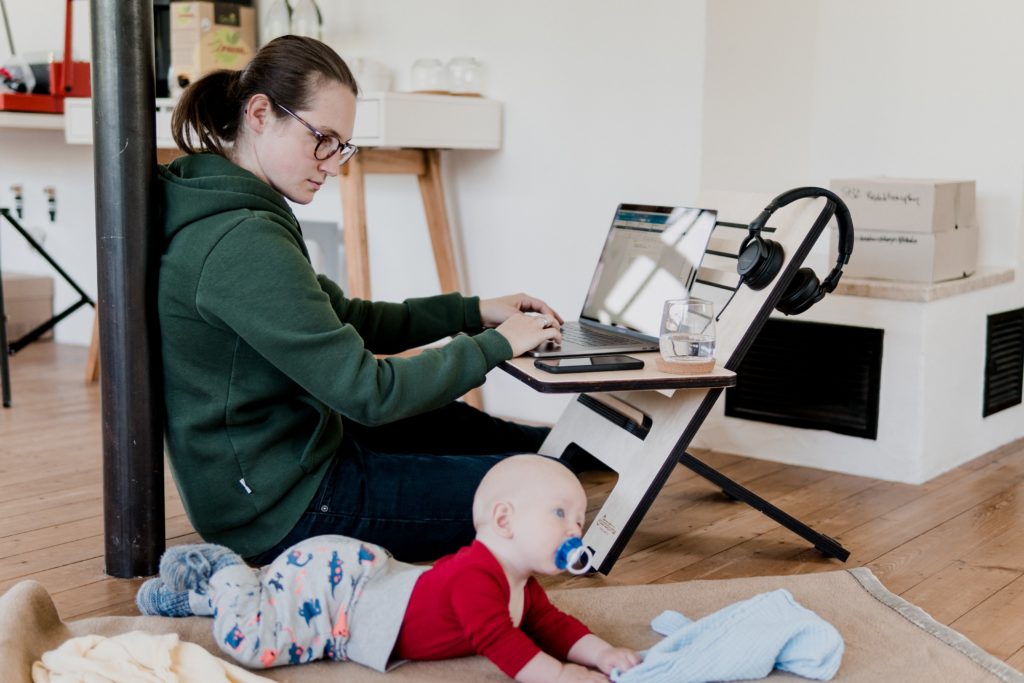 Long before the pandemic became a global reality, I wrote about the benefits of working from home never realizing how many workers would pivot to pyjama laptop meetings in a makeshift office in their kitchen. In this two-part series, I discussed the evolving concept of virtual offices replacing the traditional notion of in-person headquarters.
Long before the pandemic became a global reality, I wrote about the benefits of working from home never realizing how many workers would pivot to pyjama laptop meetings in a makeshift office in their kitchen. In this two-part series, I discussed the evolving concept of virtual offices replacing the traditional notion of in-person headquarters.
 Although rarely acknowledged publicly, many places of work rarely inspire staff to work effectively or happily. Since before the pandemic I’ve seen a growing trend of younger employees opting out of traditional workspaces: rows of fluorescent lights, rooms with no windows, and an underwhelming spirit of teamwork. Let’s be honest. How often have any of us sipped coffee from our favourite mug at work, that small token of home, while we try to ignore the fact that we have seven more hours before it’s time to go home?
Although rarely acknowledged publicly, many places of work rarely inspire staff to work effectively or happily. Since before the pandemic I’ve seen a growing trend of younger employees opting out of traditional workspaces: rows of fluorescent lights, rooms with no windows, and an underwhelming spirit of teamwork. Let’s be honest. How often have any of us sipped coffee from our favourite mug at work, that small token of home, while we try to ignore the fact that we have seven more hours before it’s time to go home?
Now, during the pandemic, technology is allowing employees to work safely and effectively from the comfort of their living room. Again, while only whispered privately, many workers who never thought it possible to work productively from home now realize they don’t miss the office: their co-workers, management and the complicated office culture that comes with it.
 After speaking with a variety of people who do not want to go back to the office once the pandemic eases out of our lives, I felt it was an important issue to explore. Generally speaking, most of my clients and acquaintances have expressed an intense resistance to going back to Hawaiian shirt Fridays, potluck Christmas parties, bad music from the cubicle beside them, harsh commutes, and wearing uncomfortable office attire while attending time-leaking meetings.
After speaking with a variety of people who do not want to go back to the office once the pandemic eases out of our lives, I felt it was an important issue to explore. Generally speaking, most of my clients and acquaintances have expressed an intense resistance to going back to Hawaiian shirt Fridays, potluck Christmas parties, bad music from the cubicle beside them, harsh commutes, and wearing uncomfortable office attire while attending time-leaking meetings.
After speaking with an associate who has worked in the federal government for over four years, I was struck by her reluctance to return to her physical workplace. I found her arguments compelling; they reminded me of many of the reasons why racialized employees also want to continue to work remotely.
From an associate who wishes to remain anonymous: here are the top five reasons she never wants to step into the office again. I fear her story is all too common.
Office Culture – “Where I work, office culture comes in the form of sitting alone in a cubicle while being constantly monitored, and an occasional sheet cake in the board room. The cakes are to atone for the punitive, demoralizing ‘management’ style which is used to create and maintain a fear-based environment.”
Harassment and Fear of Reprisal – “Working from home over the last two years is the first time since I was hired that I have been free from working under duress stemming from micromanagement and abuse of authority. It is the first time I have not had my work continuously interrupted by having to be involved in some type of union grievance, either filed on behalf of myself or speaking out as a witness to the abuse experienced by my colleagues.”
Work/Life Balance – “The time, energy, and fuel costs saved from my daily commute (40 min both ways) is now going towards my home life, thus improving my overall quality of life. I also have access to ‘therapeutic’ elements at home such as animals and fitness equipment which are both great stress relievers during the day.”
 Health and Safety – “The physical building that houses my Federal government department is plagued with persistent problems such as non-working fire alarms, asbestos, mice and most recently, bed bugs. Working from home allows me to work in a safe and healthy environment free from toxins and vermin.”
Health and Safety – “The physical building that houses my Federal government department is plagued with persistent problems such as non-working fire alarms, asbestos, mice and most recently, bed bugs. Working from home allows me to work in a safe and healthy environment free from toxins and vermin.”
I didn’t expect to hear much of this. But based on what’s been described, I can’t say that I blame this person for wanting to remain a remote employee indefinitely. I do hope that ultimately, most of these problems can be solved, but in the meantime, working from home is allowing my associate to go from surviving to something almost like thriving.
Do you want to discuss a career, leadership, HR, or training-related matter? Reach out today for a free and confidential initial consultation by phone, email, or via direct message on Twitter, Facebook or LinkedIn.
More than career coaching, it’s career psychology®.
I/O Advisory Services Inc. – Building Resilient Careers and Organizations.™




